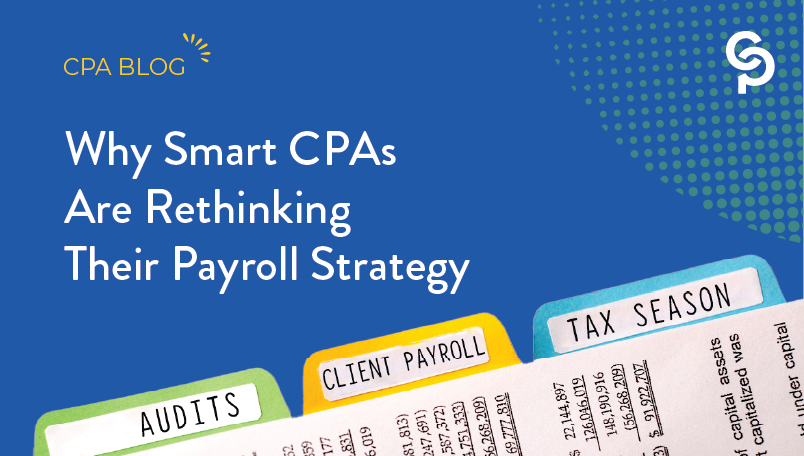Why Smart CPAs Are Rethinking Their Payroll Strategy

CPA firms were in a unique position during the COVID-19 pandemic. Not only were they trying to help their business clients deal with the new compliance nightmare of hybrid employees, they were also dealing with the nightmare themselves.
Here’s a look at both the opportunities as well as challenges encountered by CPA firms as they attempted to help their clients (and themselves) navigate the permanent pandemic workforce model of hybrid employees.
Opportunities for CPA firms
More client demand. CPAs, already viewed as trusted advisors, saw an uptick in demand for their payroll services as many businesses hurried to adapt to the hybrid working model. Another factor: companies that once handled payroll in-house chose to outsource due to the increased complexity and administrative work of properly processing remote employees’ payroll.
Advisory services beyond payroll processing. With payroll becoming more and more complicated, many CPAs have shifted their focus into a broader advisory role. CPAs have used payroll processing as a springboard into more value-added services including multistate tax compliance, remote employee benefits, state-by-state leave policies, and cross-border employment strategies.
Adoption of new payroll technology. CPA firms that may have been hesitant at adopting new payroll technology now needed to do so if they wanted to stay relevant in the eyes of their clients. The rise of cloud-based payroll platforms and integrated HR tools made it easier than ever for CPAs to manage payroll for clients that managed hybrid teams.
Hybrid Work is Still a Logistical Labyrinth
Despite the payroll processing opportunities created by the rise of the pandemic’s hybrid workforce, there are still challenges that CPAs must work through if they want to continue offering payroll services.
Multi-jurisdictional tax complexity. With employees working from multiple states (sometimes without their employer’s full awareness), companies inadvertently trigger tax obligations in jurisdictions where they previously had none. For CPAs, this means helping business clients navigate state income tax withholding requirements, local payroll taxes, and unemployment insurance rules.
Inconsistent regulatory guidance. Many states adopted temporary “pandemic expectations” to tax rules that have since expired or changed. The result is a patchwork of guidance that’s constantly changing. This regulatory ambiguity requires CPAs to stay updated on the constantly changing tax and payroll landscape, something that smaller CPA firms may struggle to do.
Data security and privacy concerns. With sensitive data being accessed from home networks and various devices, CPAs should have rigorous security protocols in place. Building out a properly-secured network with appropriate cybersecurity insurance is now a necessity, rather than a luxury.
Increased liability. CPAs providing payroll services are increasingly exposed to professional liability, especially if their engagement letters don’t clearly define the scope of services or the client’s responsibilities.
With these and other challenges faced by CPAs who provide payroll services, some are opting to either partner with an outside payroll expert or even exit the payroll industry altogether. If you’d like more information on either partnering with our payroll team, or maybe even selling your payroll practice, connect with us now to learn more.






